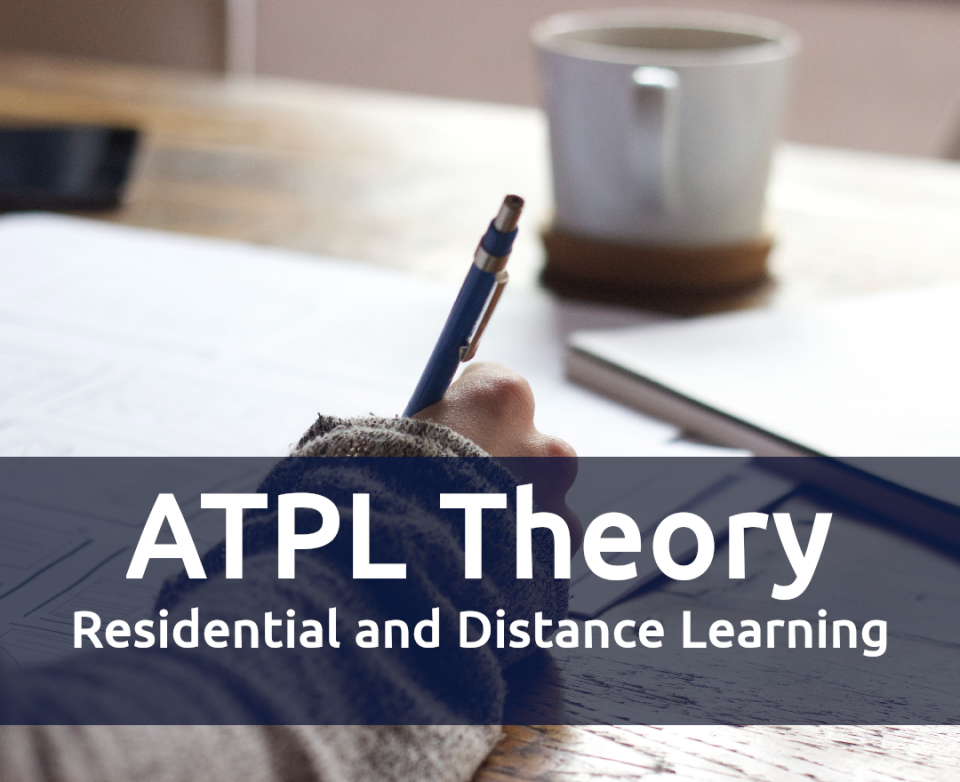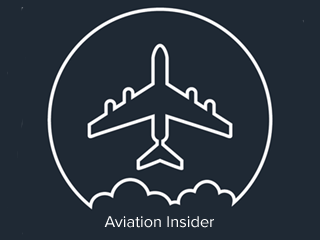ATPL THEORY
(EASA & UKCAA)
Our full list of Residential ATPL Theory Providers can be viewed here.
Our full list of Distance Learning ATPL Theory Providers can be viewed here.
About the course
The EASA/UKCAA Airline Transportation Pilots Licence theoretical knowledge part of flight training consists of 14 subjects for which there is a written exam for each. Once all subjects have been studied and examinations passed, it will allow the individual to attain a ‘frozen ATPL’ to fly commercially for an airline or company. A ‘frozen ATPL’ will become ‘unfrozen’ once passing 1500 flying hours.
The course can take anywhere between 6 to 18 months and depends on the ATO and choice of route. EASA and UKCAA mandate 18 months for completion of the exams from the date of the 1st exam being sat. All integrated courses are conducted via the ‘Residential’ route and designed to last 6-9 months from starting the syllabus to completing it. With the modular route it can be different because you can choose to study via ‘Distance’ learning and the time you wish to take for studying is decided by you, but the 18 month timeline still applies to exams. More about this is explained later.
The syllabus covers a wide range of subjects which will give you comprehensive knowledge and understanding of being able to fly an aircraft. The subjects are; Aircraft General Knowledge, Air Law, Flight Planning & Monitoring, General Navigation, Human Performance and Limitations, *IFR Communications, Instrumentation, Mass and Balance, Meteorology, Operational Procedures, Performance, Principles of Flight, Radio Navigation, *VFR Communications.
*For courses starting after 1st January 2021, both Comms subjects will be combined into one in order to adhere to the new ECQB syllabus, that is at present, running alongside the existing one. From January 2022, the new syllabus will be the sole/primary one in use accross all authorities and exam centres. Please check with your provider.
Course requirements
- You would need to be a part of an accredited ATO and attain a recommendation to sit each exam after a sufficient amount of theoretical classroom training. This is achieved by studying a minimum number of hours in a classroom and sitting a mock exam, at your ATO, for each subject to prove competency, and lasts for 12 months, before another mock exam must be sat.
- Modular students must hold a valid PPL.
- Students must be at least 17 years of age to commence the ATPL theoretical knowledge course with many ATOs.
- Competency in English Language.
- No ratings need to be held in order to start an ATPL theoretical knowledge course.
Course structure and completion
There are 14 subjects to study and sit exams for, with a pass mark of 75%. These exams must be completed within 6 ‘sittings’ at an accredited examination centre if your licence authority. If an exam is failed, it can be resat either in the same sitting depending on the authority and exam centre, or in a different sitting (which would count towards your 6), to a maximum of 4 attempts per exam. All exams and attempts must be completed within 18 months of the first exam of your first sitting. (Covid extensions may apply, please check with your authority and exam centre).
Exams and sittings can’t be split between authorities, however the 6 sittings can be split between exam centres within the same authority of licence issue. If the 18 months lapses without completion, the individual exam attempts exceed 4, or all 14 exams aren't successfully completed within the 6 sittings, then all 14 exams will have to be attempted again and the whole process starts again. This will be classed as ‘Series 2.’
Study can be done via ‘Residential’ or ‘Distance’ learning, both with an accredited ATO;
- Distance learning comprises undertaking most of the studying at home in your own time at your own pace, whilst attending instructor-led classroom revision sessions at your ATO when required and sitting mock exams to check knowledge and competency. This might suit those who are balancing home life and work life alongside studying.
- Residential learning comprises studying full-time in a classroom environment at your ATO, similar to a school day. This usually takes between 6 and 9 months depending on which ATO you choose.
The “norm” is to split subjects into 3 modules, across 3 respective sittings, for example; 5,5,4, however this is down to each ATO and student and can vary as required.
A course completion certificate is issued upon successful completion of the ATPL theory course.
Our full list of Residential ATPL Theory Providers can be viewed here.
Our full list of Distance Learning ATPL Theory Providers can be viewed here.
Equipment
Study material required for this course should be provided to you by your ATOs and are usually included in the course price. Some providers use e-books so therefore the tablets/laptops required to use them would have to be purchased separately by the student. Required equipment such as CRP-5 flight computer, stationary including Geometry kit, Jeppesen manual and Question Bank subscriptions will also have to be purchased separately by the student. All of what is needed will be outlined prior to starting the course, but the above items should suffice.
Tips & Advice
- Ensure that you practice efficient time and workload management by following a prescribed structure advice by your ATO. Split the subjects per module accordingly by subject content and difficulty.
- Choose the study method/methods which suits your optimal learning style; Visual, Textual, Aural etc.
- Ensure that you eat and rest well in order to be mentally and physically fit so that you can study and retain information better. Practicing good nutrition and self-care will aid optimum cognitive and physiological function to help you to perform to the best of your abilities.
- Pay attention to the course study material. Make enough notes to help you, use the question banks and exam feedback by incorporating it into your study to further enhance and test your studying and knowledge. Use a variety of tools to build and strengthen your knowledge, such as Google, YouTube, Articles etc.
- Talk with your classmates and discuss any topics which you feel weaker in and also help others with topics which you feel stronger in. This whole process is about helping one another.
- The groundschool contains a lot of information to absorb in a fairly small time period, but if you approach it with a focused mindset, strict discipline and are willing to put the work rate in, then you will succeed. Practicing good discipline during ATPL study will help out when it comes to your Airline Type Rating as well.
- Flashcards and post-it-notes are useful to note key information and stick them up on your wall.
- Mnemonics will become your new best friend!
- Always remember, NO QUESTION IS A STUPID QUESTION! So if you are unsure about something, then ASK! ASK! ASK! Chances are that there will be others who are wondering the same thing.
- Subject feedback is valuable for this course and there is a very useful group on Facebook called “ATPL Theory Students” that provides a great forum for students to help each other and discuss subjects and exams. The group was created by Adam McVeigh and his story can be read in our interview.
Common mistakes
- Not paying attention to the study material or putting the required work rate into the course. “Short term pain, long term gain.”
- Relying TOO MUCH or TOO LITTLE on the question banks. Remember, the banks are there to test your knowledge and help you to understand the wording of exam questions and to familiarise you with the types of questions you will be asked. It also does help in strengthening your subject knowledge.
- Not getting enough sleep or rest.
- Leaving things to the last minute.
- Not structuring your exams and sitting usefully. Try and refrain from leaving all of the ‘difficult’ subjects to the end, or trying to do all of the ‘easier’ ones first. A balanced spread is a good way to approach it.
- Not knowing and addressing your areas of weakness. If you need help and support, don't be afraid to ask! Self-awareness is crucial and will certainly play a huge role in the rest of your aviation career.
The ATPL Theory part of your training will prove invaluable and arm you with a vast amount of knowledge that you will take with you for the rest of your career. Every commercial pilot has been through this process and it certainly is a demanding yet very rewarding part of training. The feeling you get after successfully accomplishing all of the exams is a really good feeling. If things get a bit tough along the way, don't give up, just keep focused and remember why you started this amazing journey to becoming a pilot.
Next steps
Hour Building (towards Commercial Pilot Licence - CPL)
Instrument Rating - IR (Multi/Single Engine)
Multi Engine Piston Rating - MEP
Commercial Pilots Licence
AUPRT
MCC / APS MCC
Airlines/ Companies
Our full list of Residential ATPL Theory Providers can be viewed here.
Our full list of Distance Learning ATPL Theory Providers can be viewed here.



